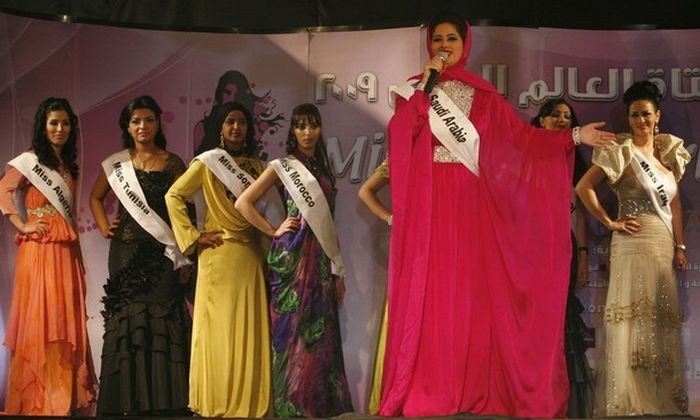Miss Arabia 2009
|
The men are still the dominant gender in this area. This phenomena is justified by the fact that the communities in the Middle East are shaped upon one gender having distinct responsibilities. That is where men have full responsibility to support their families with the food and supplies they need and therefore they have to work and, subsequently, they have to get education to keep up with contemporary developments, while women have to take care of the house and children. This justifies the low contribution of the women in the economy. However, there is a recent trend in which women have begun penetrating the workforce, but it is still in low scale.
Adherence to traditional dress varies across Arab societies. Saudi Arabia is more traditional, while Egypt is less so. Women are required to wear abayas in only Saudi Arabia; this is enforced by the religious police. Some allege that this restricts their economic participation and other activities. In most countries, like Kuwait, Lebanon, Libya, Jordan, Syria and Egypt, the veil is not mandatory. In Tunisia, the secular government has banned the use of the veil in its opposition to religious extremism. President Zine El Abidine Ben Ali has called the veil sectarian and foreign and has stressed the importance of traditional Tunisian dress as a symbol of national identity. Islamic feminism counters both sorts of externally imposed dress codes.
|
|















